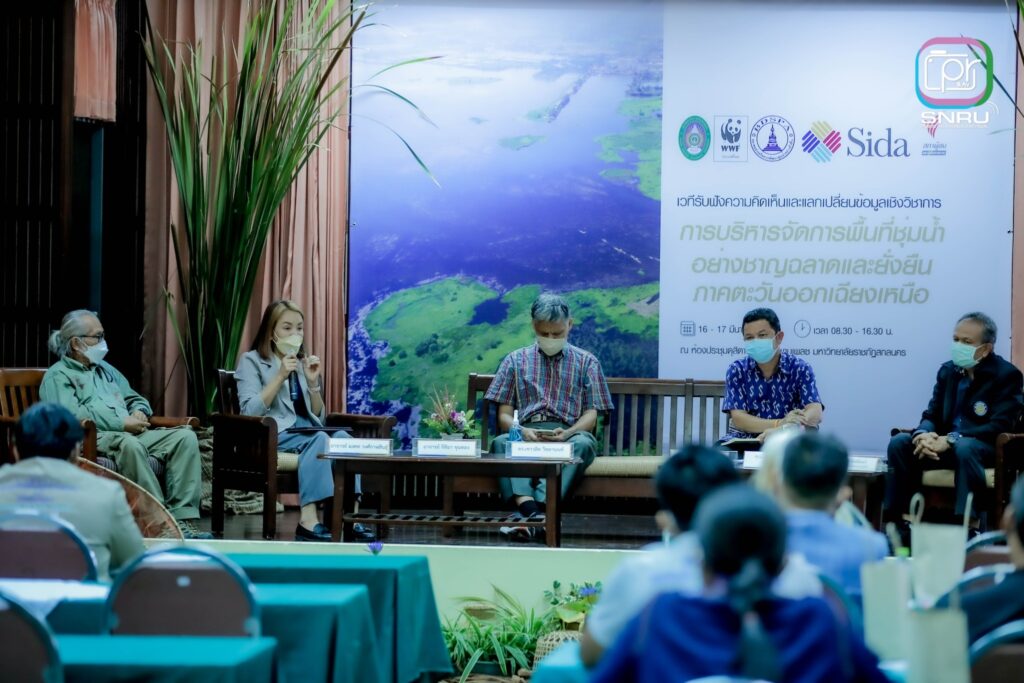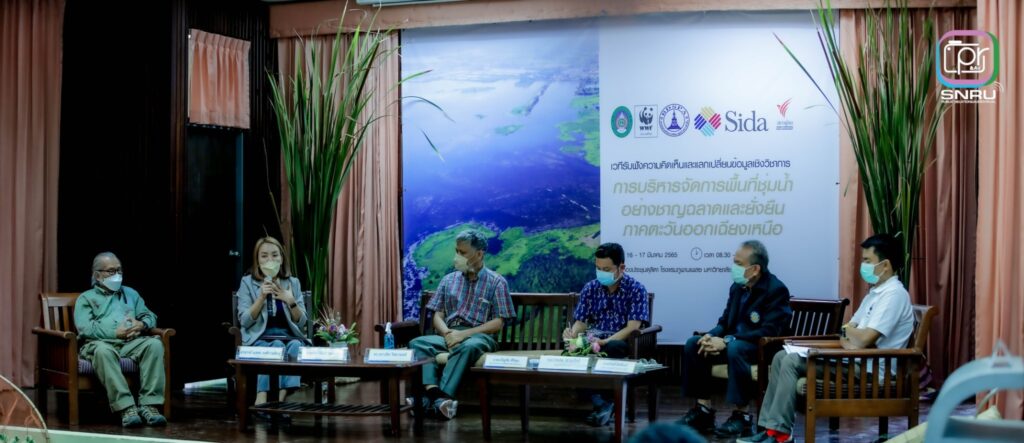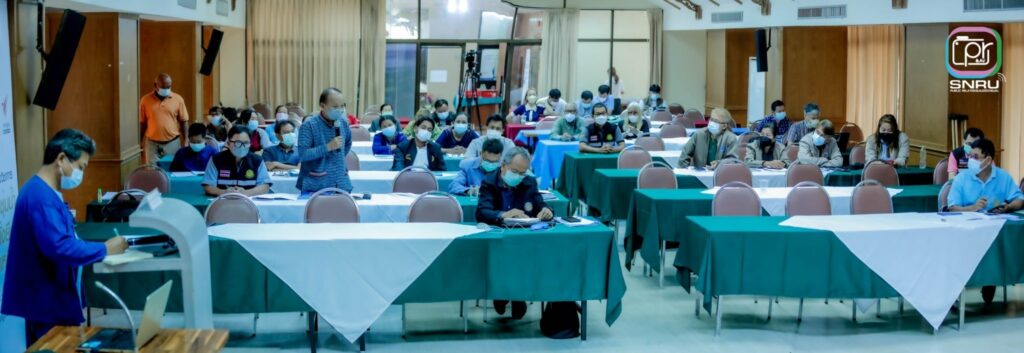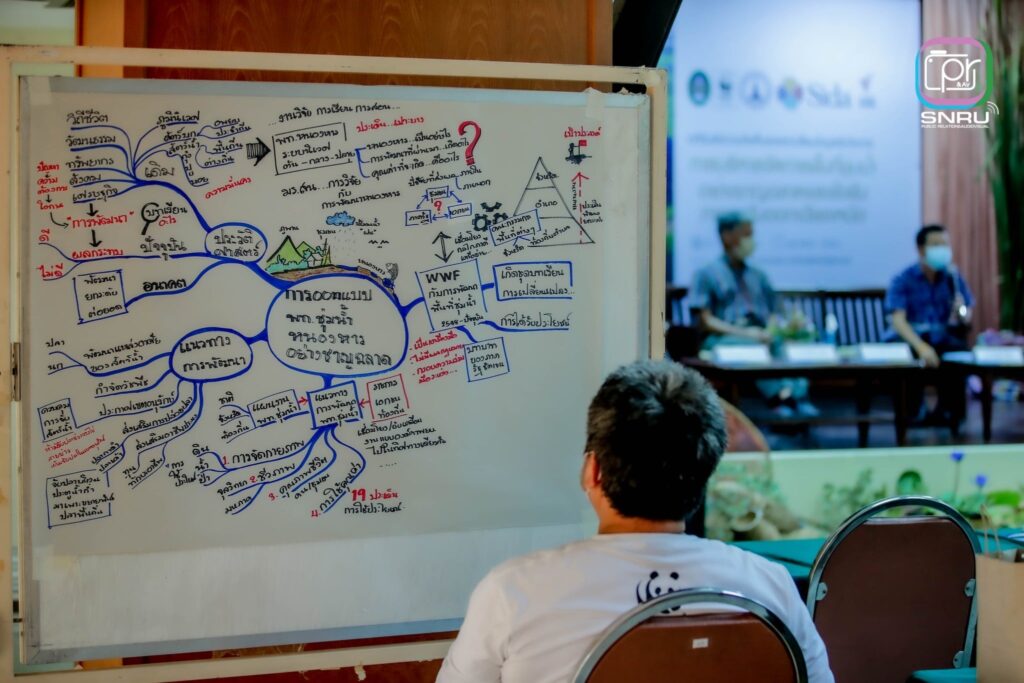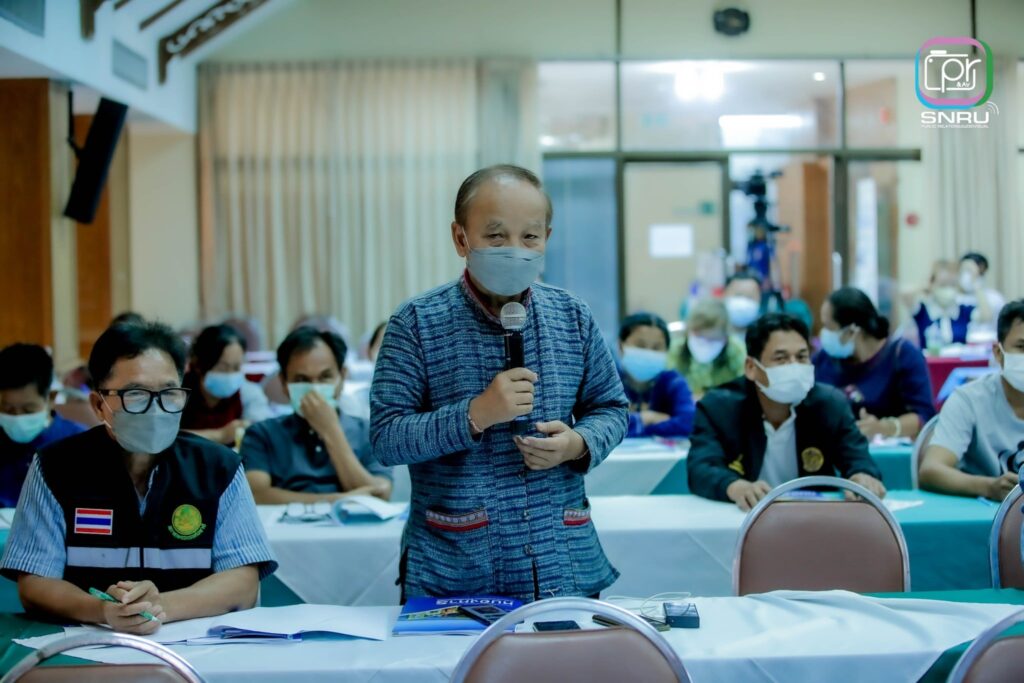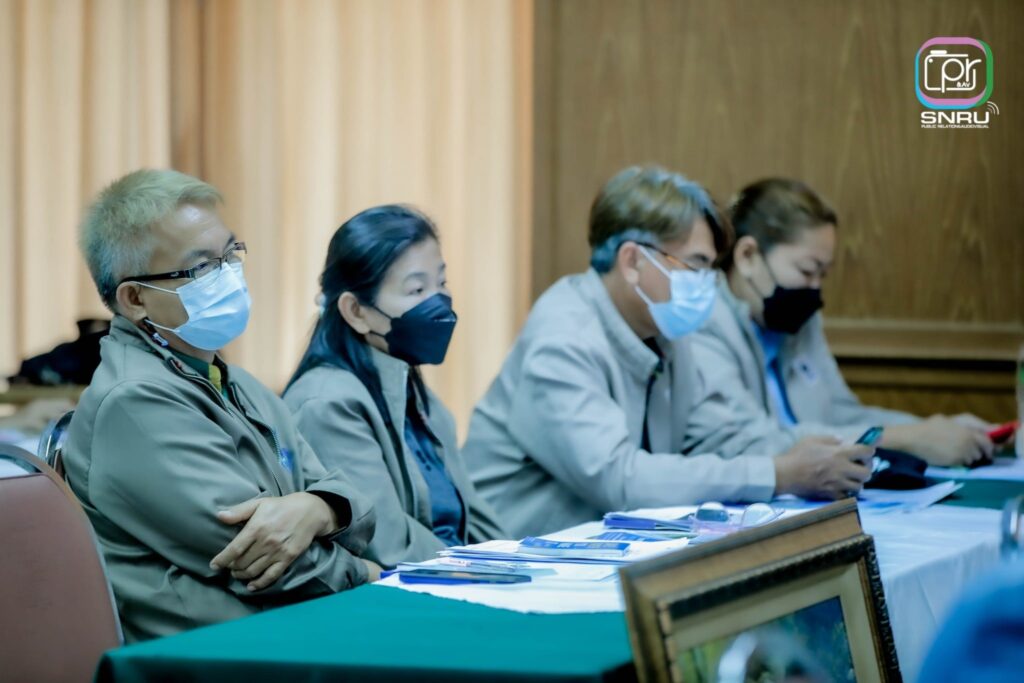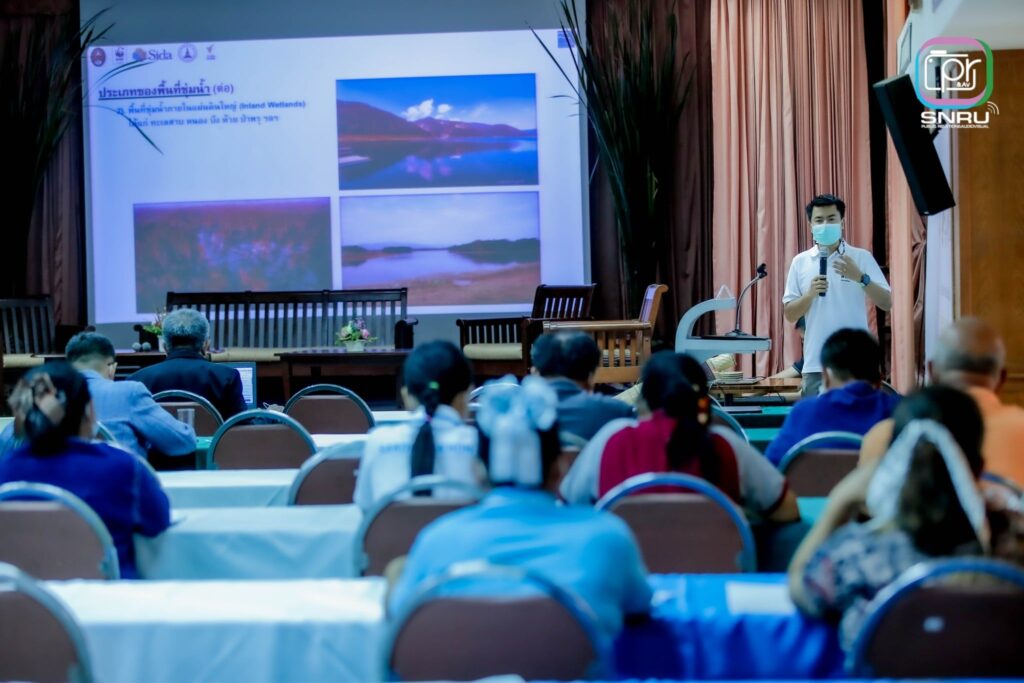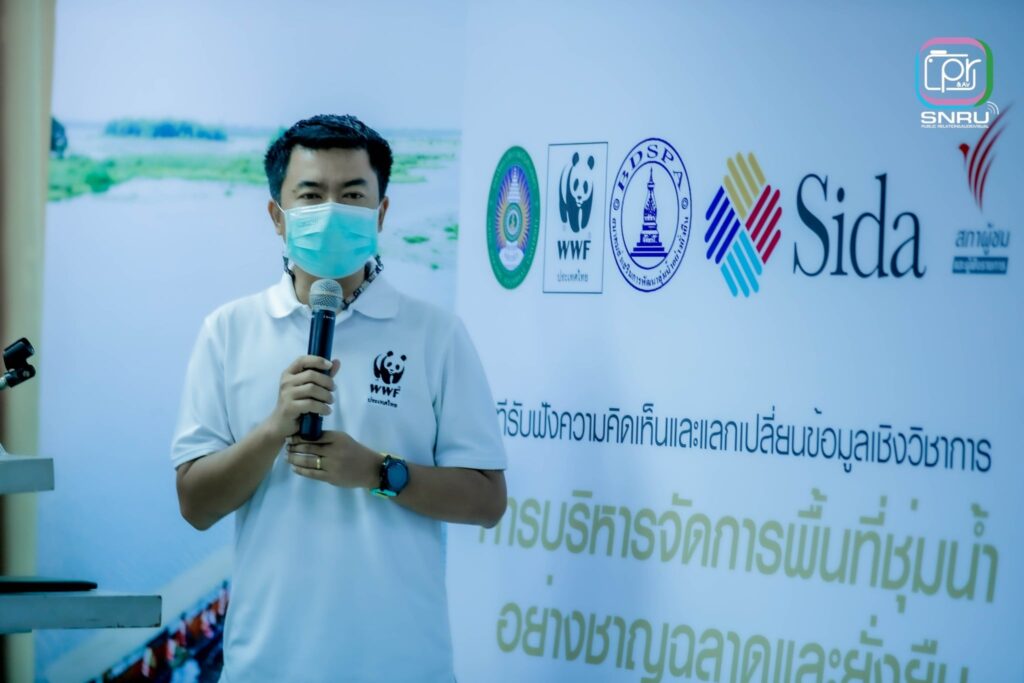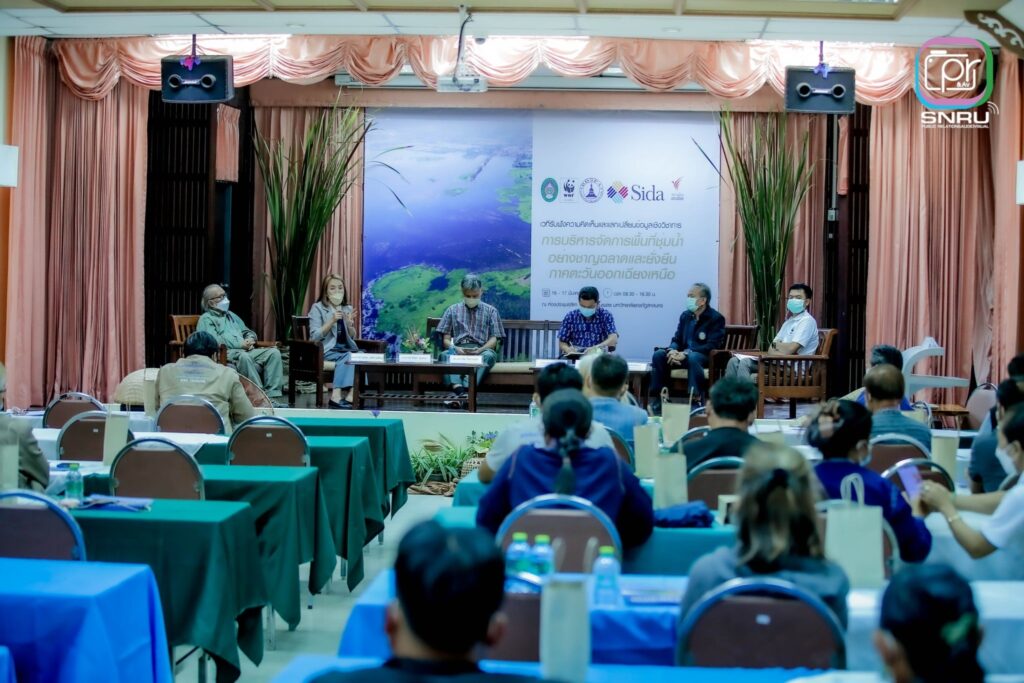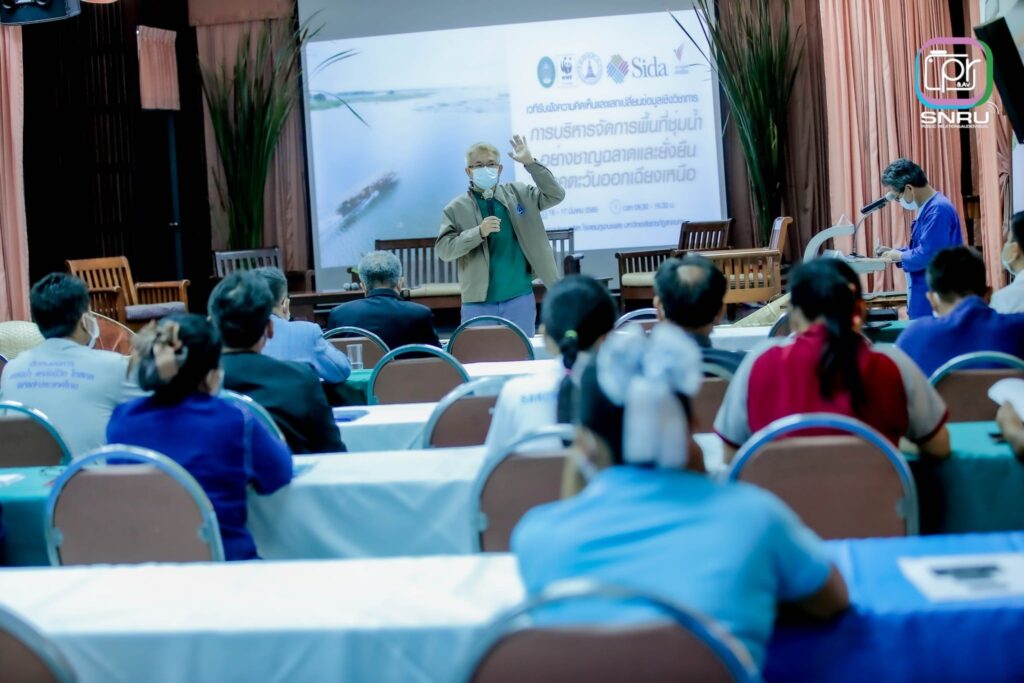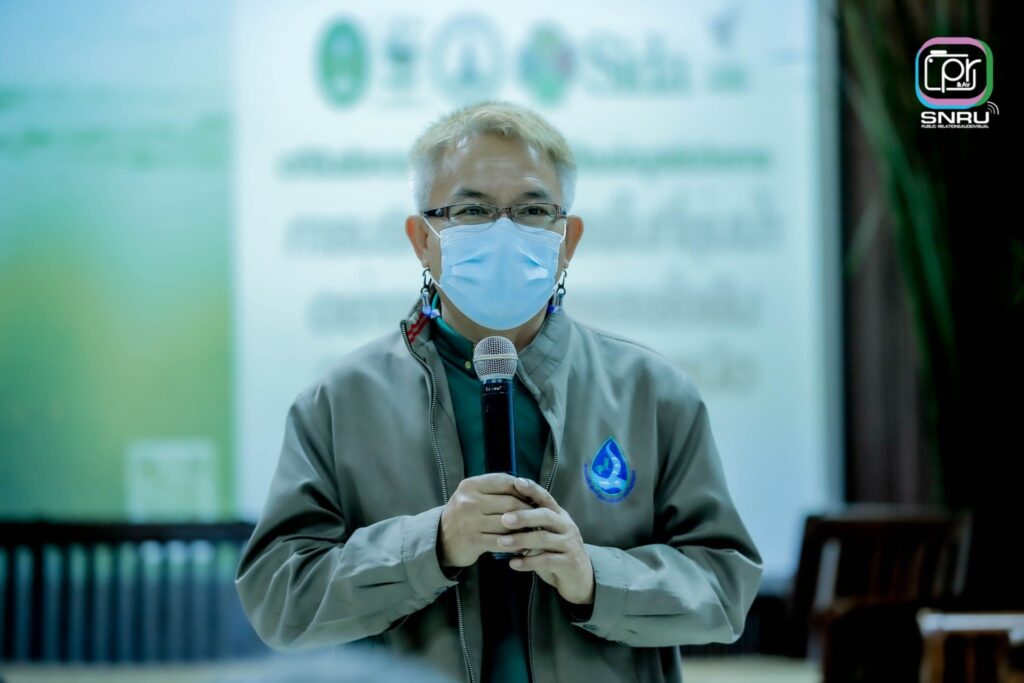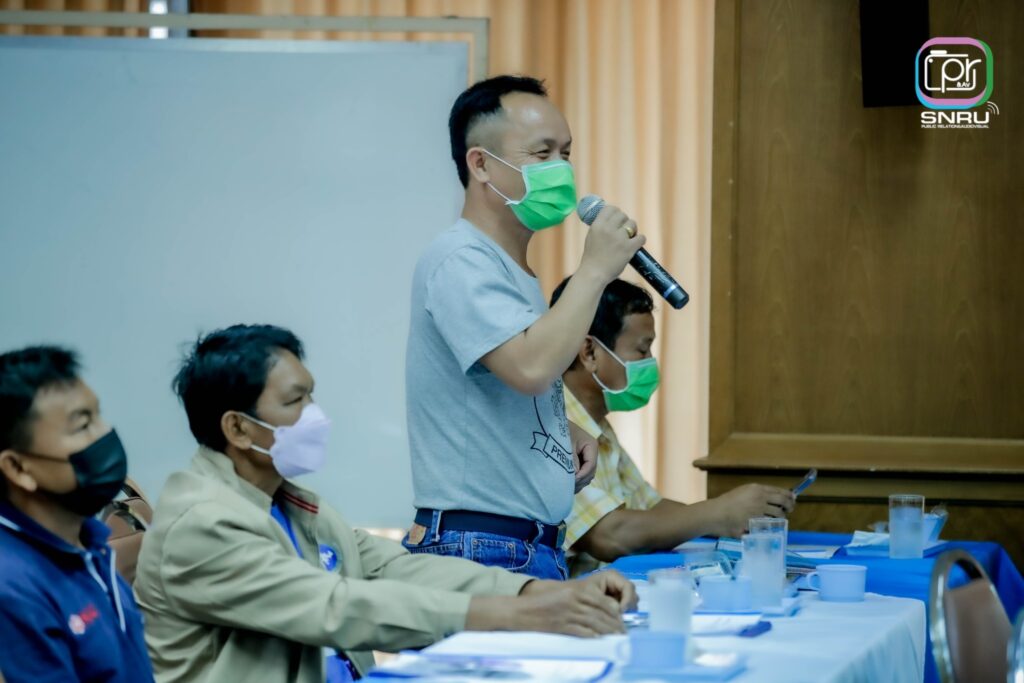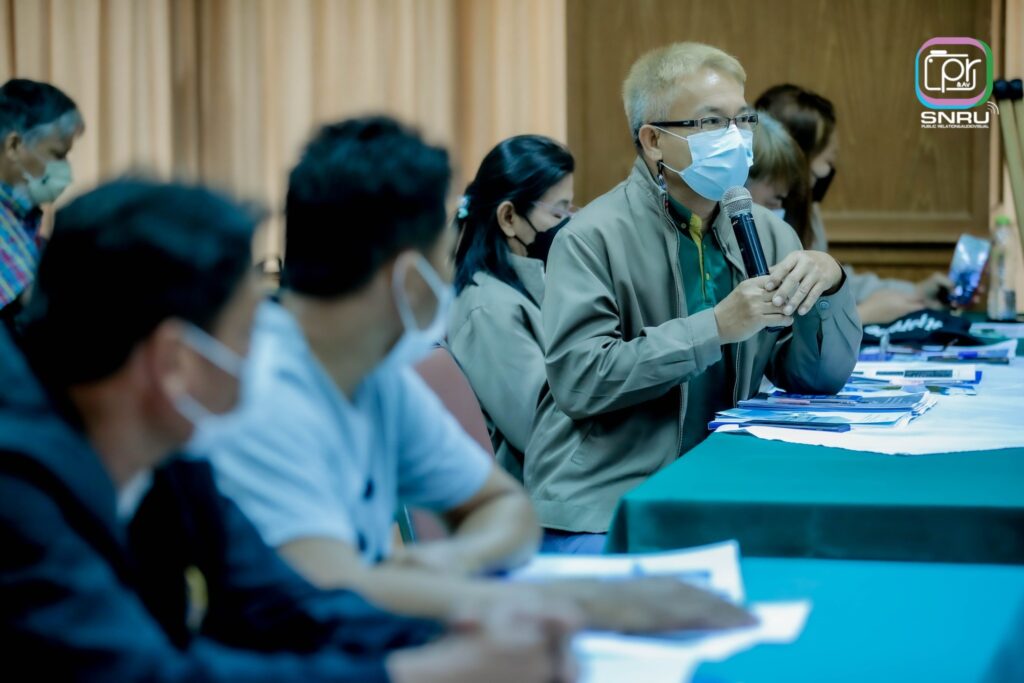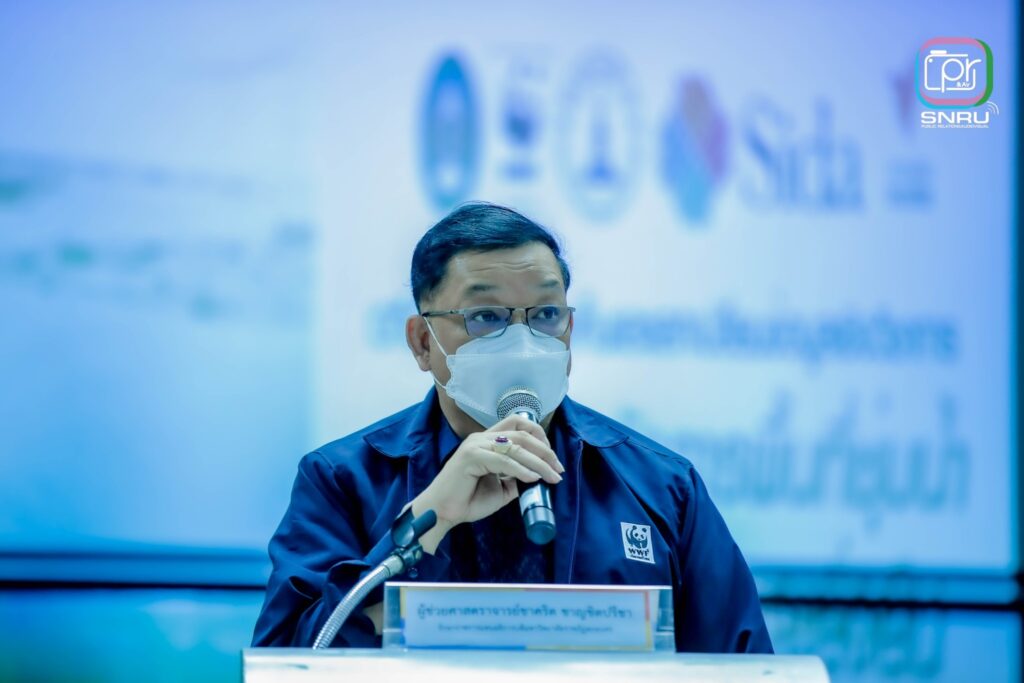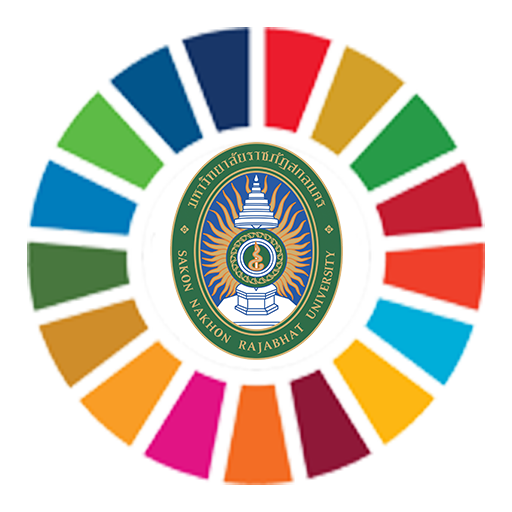On March 17, 2022, the Nong Han Research and Development Institute of Sakon Nakhon Rajabhat University, in collaboration with organizations such as WWF SIDA, the Association for the Promotion of Sustainable River Basin Development, and the Council of Viewers and Listeners of Thai Phi BS Programs in the Northeastern region, organized a forum project to gather opinions and exchange academic information on smart and sustainable wetland management in the Northeast.
The event was chaired by Assistant Professor Chakrit Chanchitpreecha, acting president of Sakon Nakhon Rajabhat University, and included experts and academics from various fields, including Professor Mongkol Wongkalasin (Bird ecology), Dr. Chaowalit Witthayanon (Fisheries resources), Lecturer Kitima Khunthong (Water Resources), and Assistant Professor Dr. Chainarong Setthachue (Social). Representatives from the Office of Natural Resources and Environment in Sakon Nakhon Province and Mr. Yanyong Sricharoen from the World Wildlife Fund (WWF) were also in attendance. The program was moderated by Mr. Nipon Munmuangsaen, President of the Association for the Promotion of Sustainable River Basin Development.
The event focused on exchanging information about the wetland situations in the four wetland networks (Bung Khong Long, Kut Thing wetlands, Lower Nam Songkhram, and Nong Han). Participants brainstormed ideas and made recommendations during the discussion forum.
The forum, themed ‘Smart and Sustainable Wetland Management,’ saw participation from representatives of communities around Nong Han, including 34 villages, and representatives of the Ramsar Site area in the upper northeastern region. Leaders, academics, NGOs, students, the Sakon Nakhon Provincial Fisheries Office, and the research center network of community organizations in the Nong Han area, along with other agencies, totaling over 80 people, actively engaged in discussions and collaborative problem-solving. The forum also provided an opportunity to listen to suggestions on how to enhance cooperation and partnership mechanisms for participatory wetland development.
